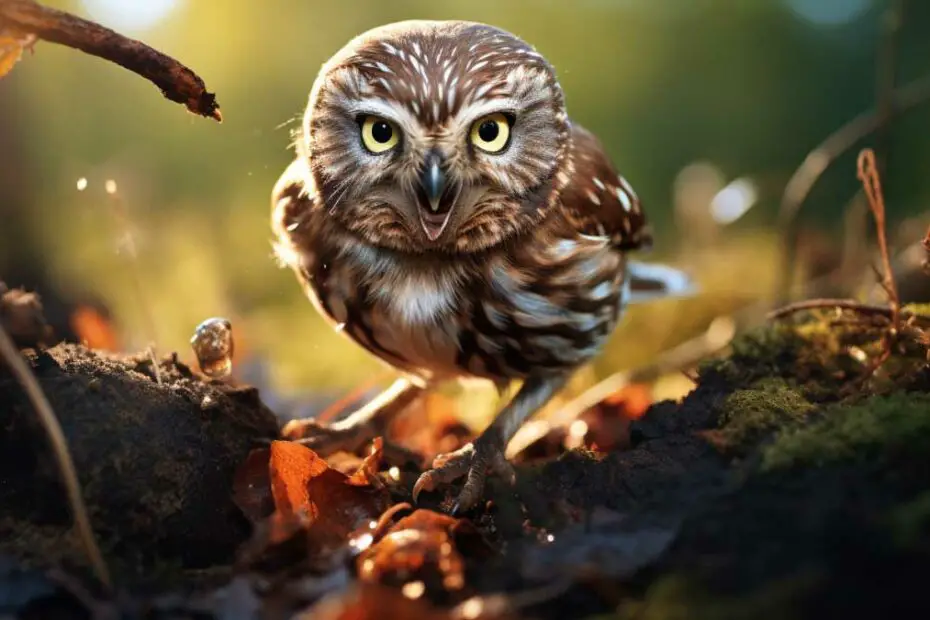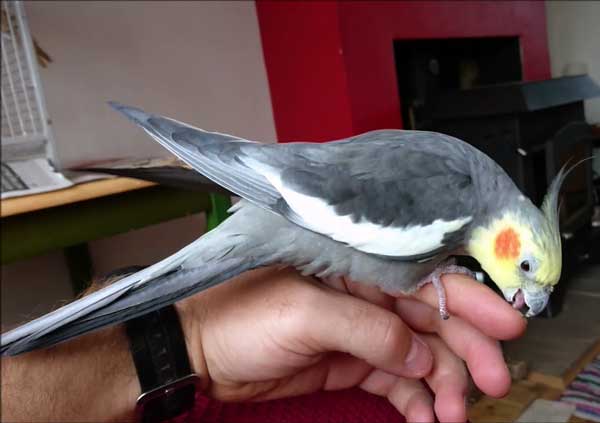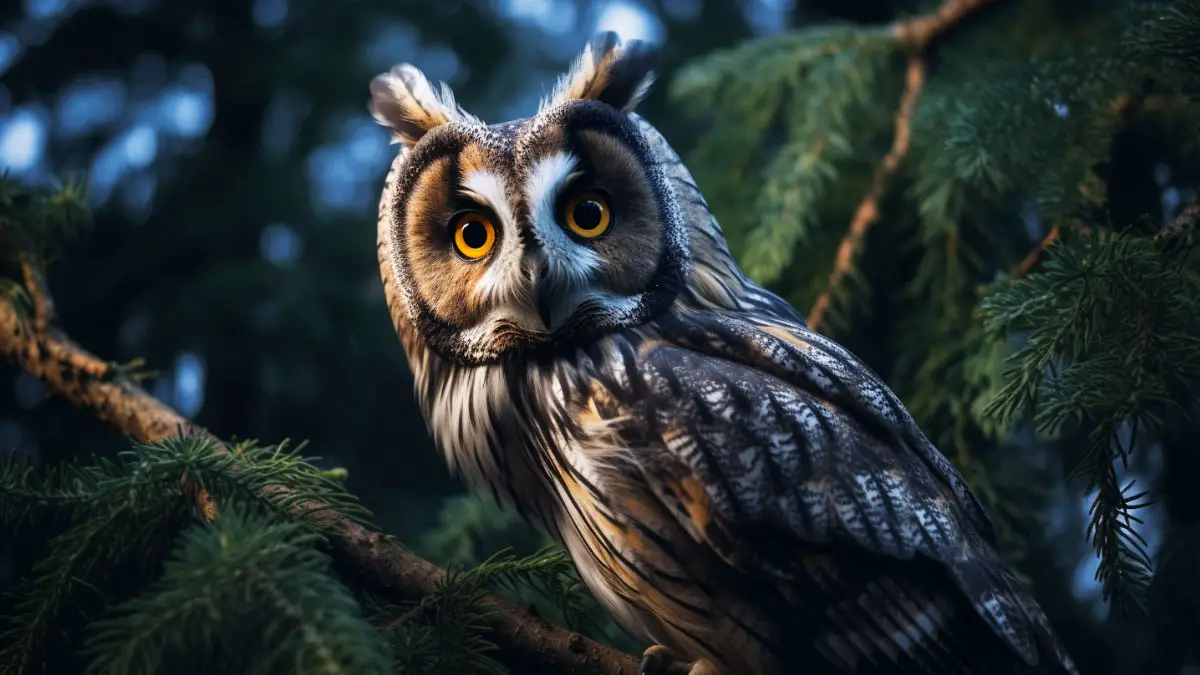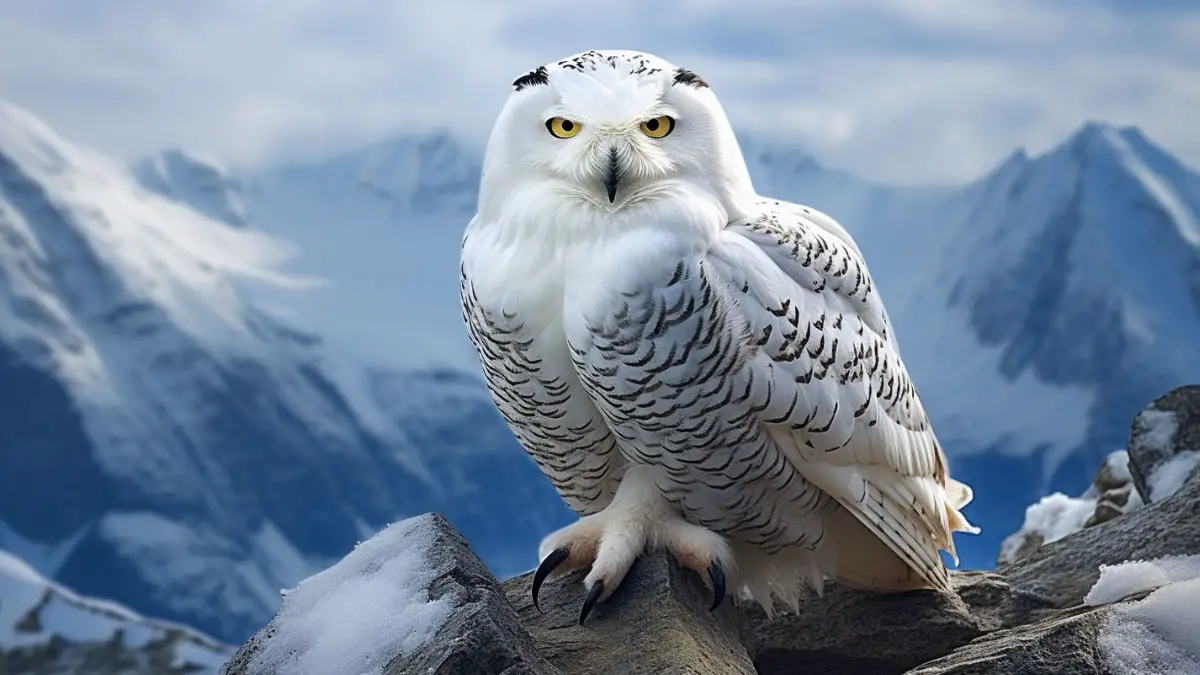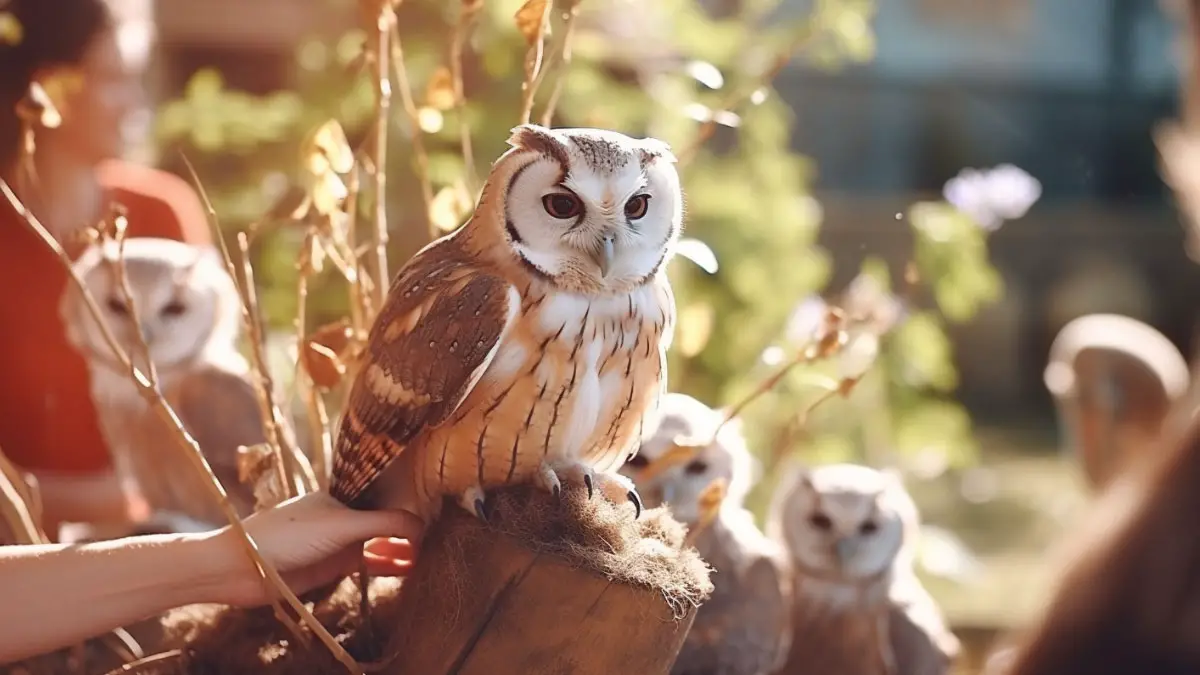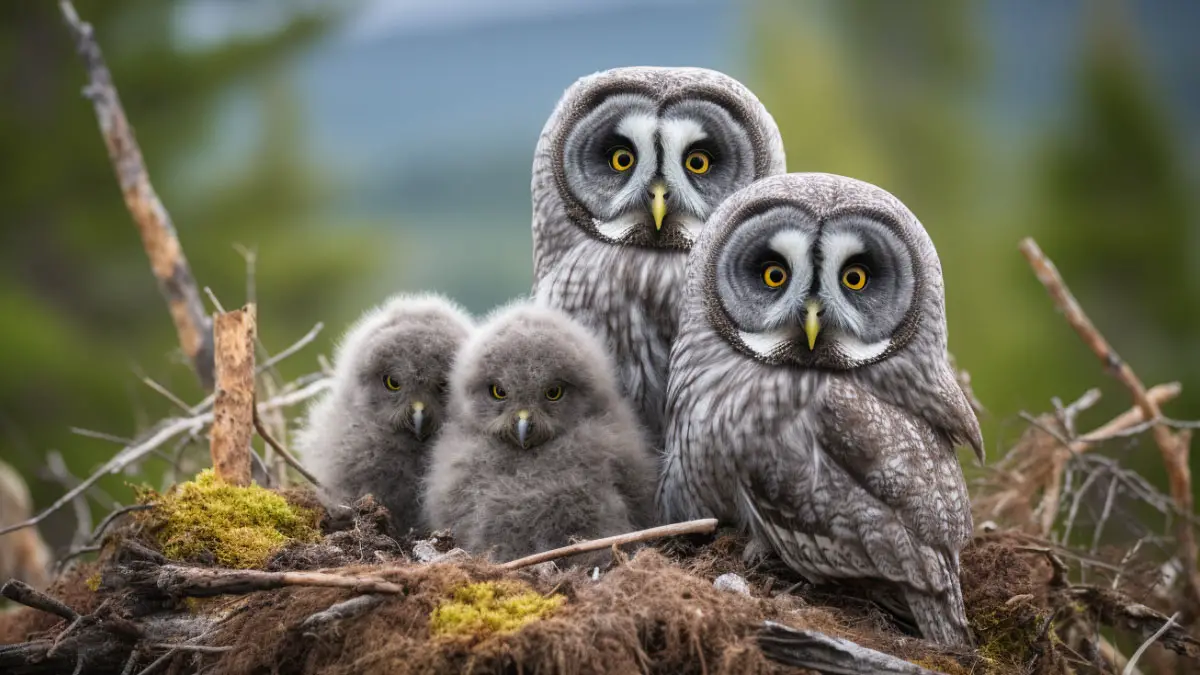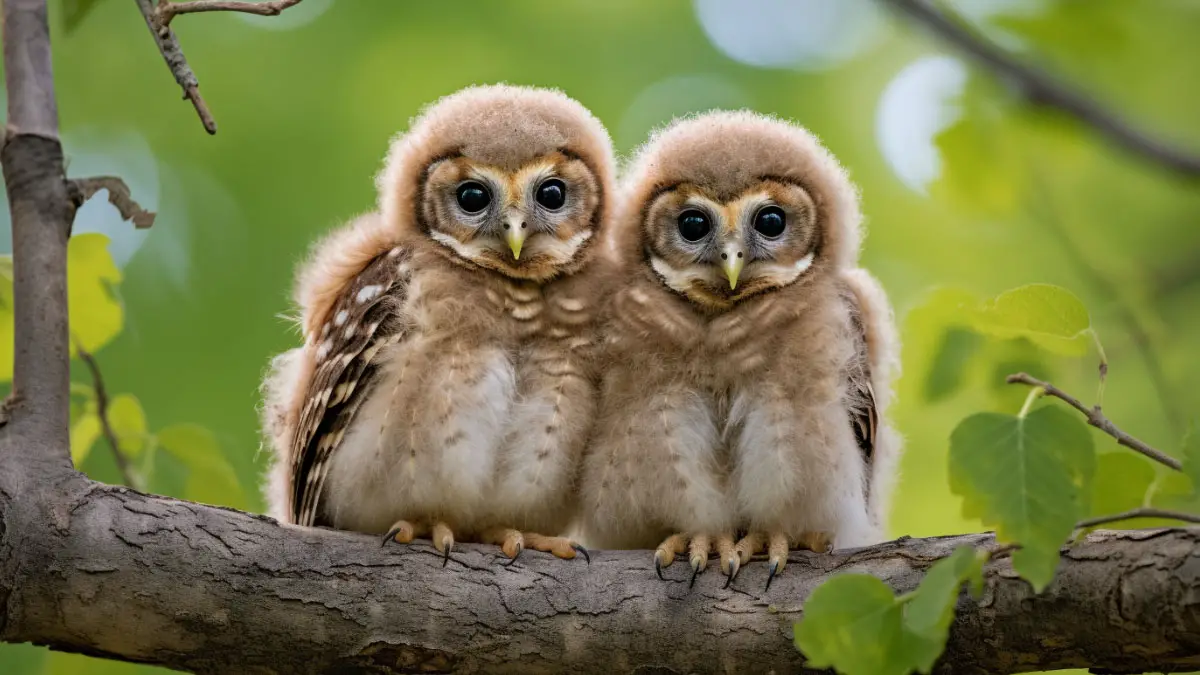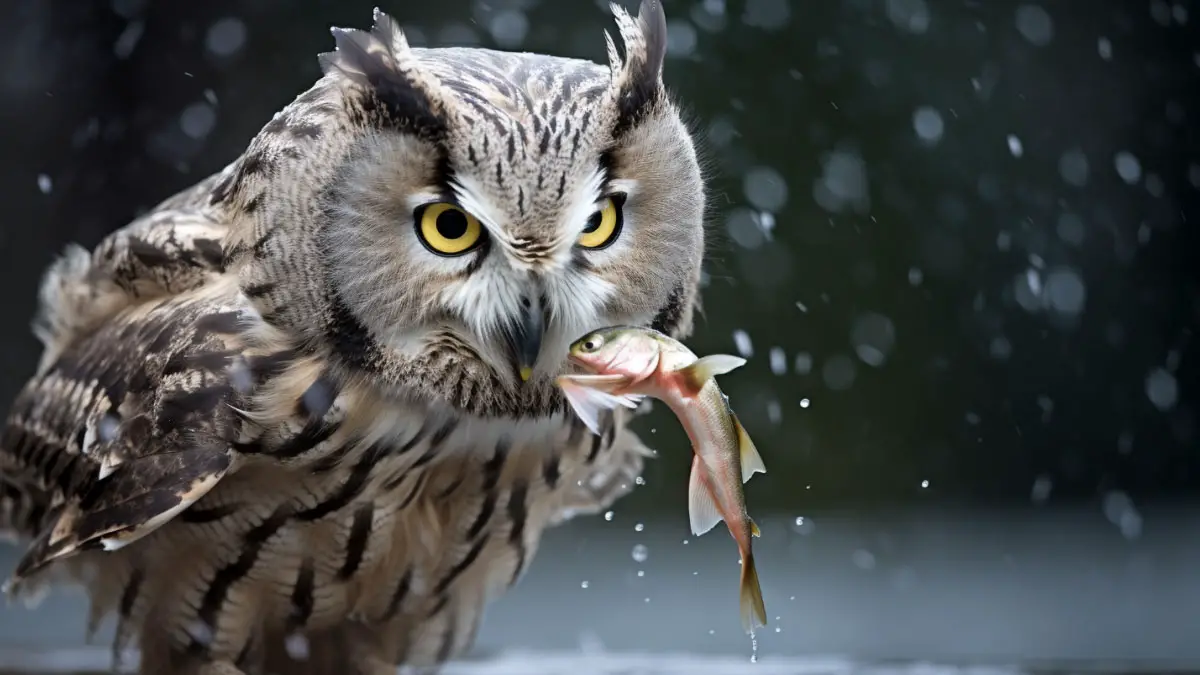As natural hunters, owls prey on other animals to survive. While most people think of owls as large birds who take away other birds and rodents, many wonder whether owls eat smaller insects and worms.
This brings us to the popular question: do owls eat worms? Yes, owls eat worms, but worms aren’t their primary food source. Smaller owl species, such as scops owls, barred owls, and screech owls will eat worms regularly. Worms are rich in protein, fat, and carbohydrates.
However, larger owls, such as the great horned owls, eagle owls, and snowy owls, typically avoid worms and prefer larger prey. Let’s dive in and find out what owls eat worms and how to offer worms to captive owls.
Do Owls Eat Worms?
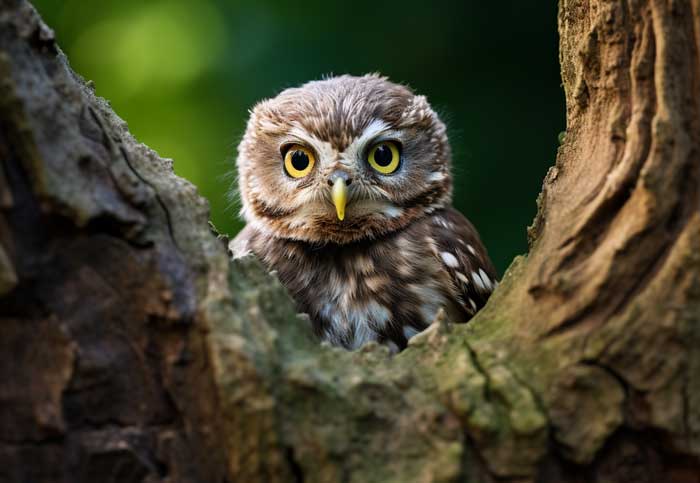
Yes, all owl species will eat worms as a source of meat, but it’s not a staple in their diet. However, the smaller species and baby owls prefer insects, worms, lizards, and other small invertebrates. Here are examples of owl species that eat worms:
Scops Owl
One owl species that eats worms as its primary food source is the scops owl. It prefers earthworms and mealworms but will have any worms available in its natural habitat.
Scops owls use their beaks to catch and tear apart worms. Their diet also includes moths, spiders, geckos, beetles, and frogs.
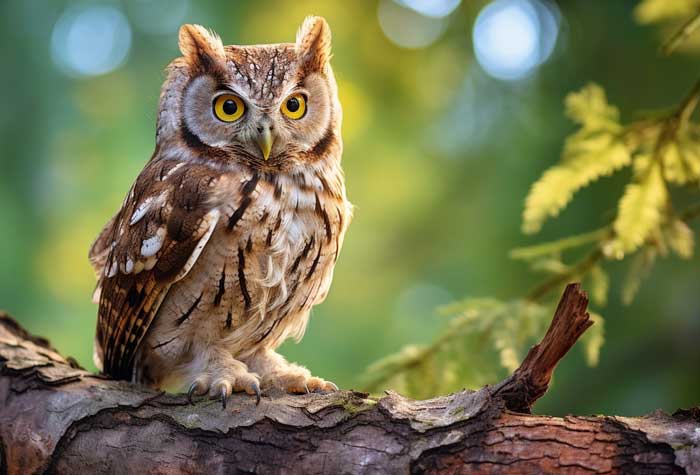
Screech Owl
Among all the North American owls, screech owls probably have the most diverse diet. They particularly like mice but eat earthworms and small insects when available.
Both eastern and western screech owls are found in the wetlands of North America, where worms are abundant. So, they naturally hunt them along with snails, squirrels, crayfish, rats, chickens, gophers, and tiny birds.
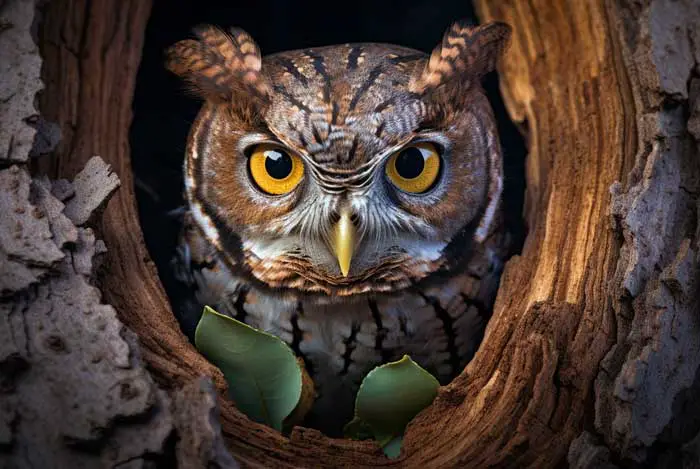
Barred Owl
According to studies, barred owls aren’t as picky eaters as many larger owl species. Therefore, they eat soft-bodied prey like worms and slugs.
Barred owls are medium-sized owls found across the forests and wooded regions of North America. Although they are excellent hunters, barred owls will eat worms as easy-to-capture meals.
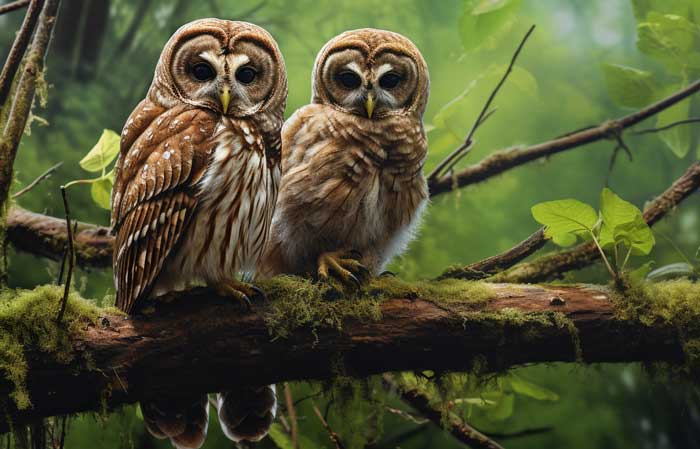
Saw-Whet Owl
With their 7-inch-long bodies, saw-whet owls can’t hunt large animals like rabbits or birds. Hence, they depend on mice, earthworms, mealworms, shrews, and voles to fulfill their nutritional needs.
Saw-whet owls use their sharp vision and excellent hearing capabilities to locate small worms that other owls might miss.
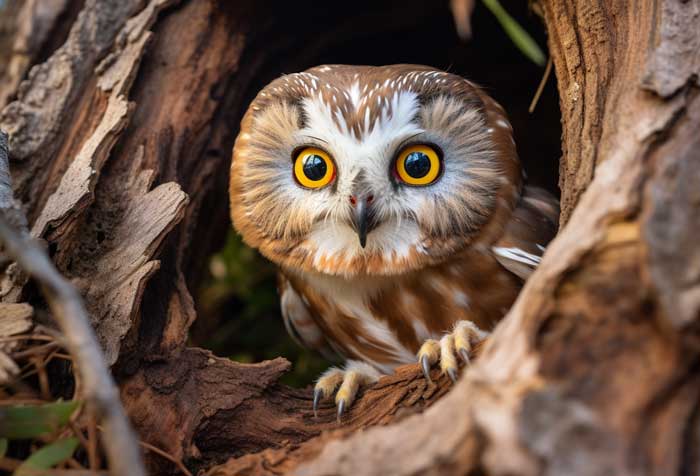
Burrowing Owl
Most worms make burrows in the ground, so they are easy targets for burrowing owls. Instead of flying and hunting like other owls, burrowing owls walk and hop on the ground in search of food.
They forage on the ground to look for worms, insects, and other invertebrates. Burrowing owls use their sharp beaks to take worms out of the ground burrows.
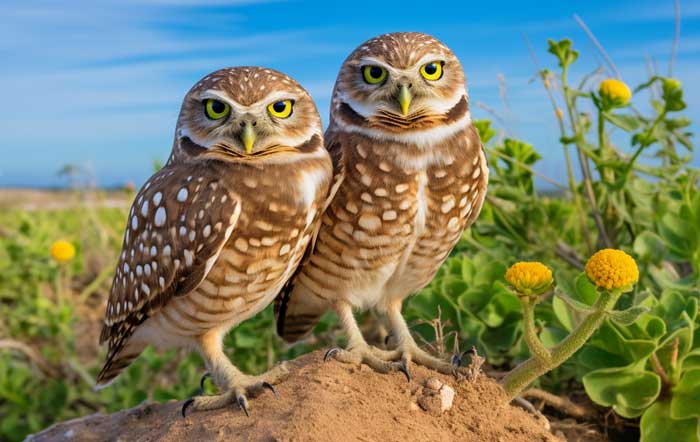
What Worms Do Owls Eat and Why?
Owls are opportunistic feeders, so they eat worms only when the worms come within their range.
Moreover, worms are a good source of protein and fat, which is essential for their survival. Unlike larger animals, worms are relatively easy for owls to catch. On top of that, worms are widely available in the natural habitat of owls.
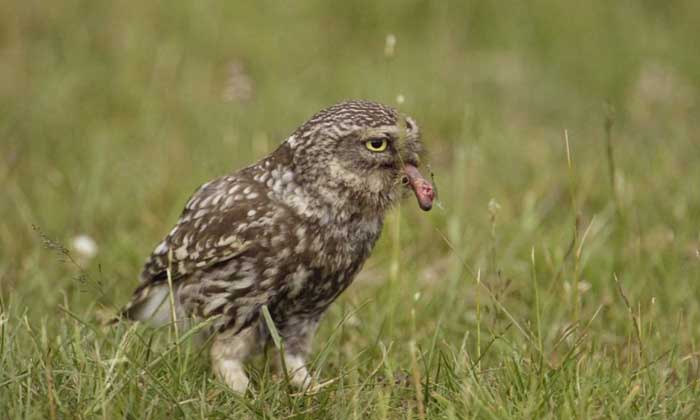
Now, here are the types of worms owls often eat and their nutritional values:
| Worm Type | Nutrition Info |
|---|---|
| Earthworms | Protein (60% to 70%), Fat (6% to 11%), Carbohydrates (5% to 21%), vitamin B, iron (50.4 mg per kg), zinc (17.7 mg per kg), phosphorus (1,590 mg per kg), and calcium (444 mg per kg) |
| Mealworms | Protein (20% to 53%), Fat (13% to 28%), Fiber (2% to 6%), Zinc (125 mg per kg), iron (59 mg per kg), and potassium (9.5 g/kg) |
| Waxworms | Protein (14.1%), Fat (24.9%), Fiber (3.4%), Calcium (243 mg per kg), Phosphorous (1,950 mg per kg) |
| Armyworms | Protein (36.9% to 63.54%), Fat (17.8% to 22.9%), Fiber (9.1% to 9.6%), Carbohydrates (1.65% to 3.3%) |
Earthworms
Almost every worm-eating owl species prefers earthworms over any other invertebrates. They are found in moist soil all over the world, so owls easily capture them from the ground.
Earthworms are a good source of protein and fat for owls. These worms have a long, segmented body, and their body ranges from brown to red to purple.
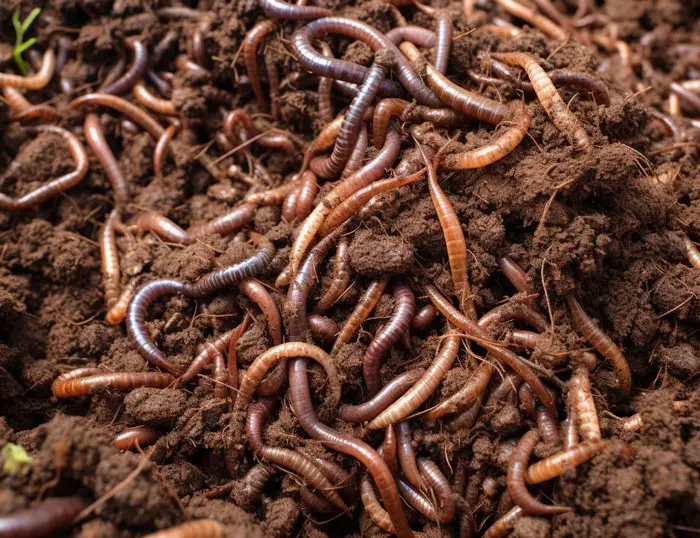
Mealworms
Another great source of protein and fiber, mealworms are the larvae of darkling beetles. Due to their high nutritional value, they are often raised as food for pets. In their natural habitat, mealworms are hunted by screech owls and burrowing owls.
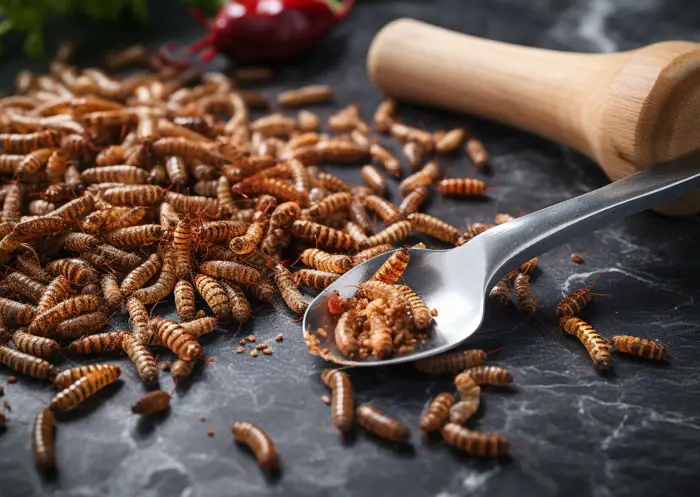
Waxworms
Commonly used as fishing baits, waxworms are also eaten by wild owls. Waxworms are the larvae of greater wax moths. Their white and cream-colored segmented body is a great source of protein for owls.
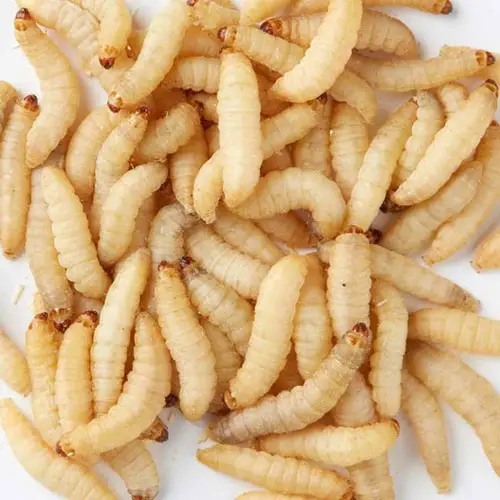
Armyworms
Just like most owls, armyworms also stay active at night. As a result, these moth larvae become easy victims of preying owls. Apart from protein, armyworms are good sources of carbohydrates, fiber, and fat.
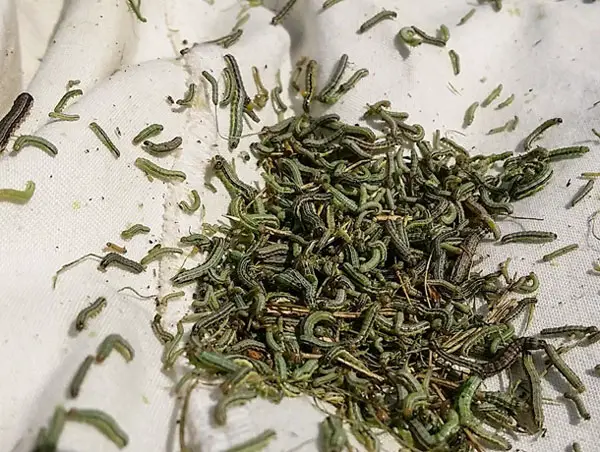
How to Serve Worms to Captive Owls?
Live, dried, and frozen worms are the most common options for feeding captive or abandoned owls at home. Here’s how you serve worms to them:
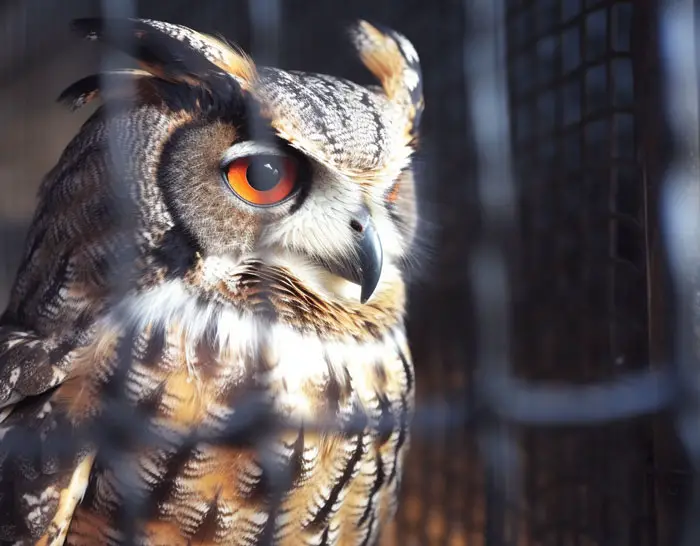
Live Worms for Adult Owls
It’s best to serve live worms to adult owls to keep their hunting instincts alive. Live worms have a higher moisture content, which makes them more appealing to owls.
Besides, their movement also attracts the birds. Take a 2-inch-deep dish and serve a handful of live worms directly to your captive owl.
Dried Chopped Worms for Baby Owls
While adult worms can easily cut and shred live worms, owlets and baby owls might not be able to do the same. They don’t develop their hunting instincts in their early stages.
Similarly, these hatchlings don’t have strong beaks and talons to capture and tear live worms. So, it’s better to serve dried worms and chop them into small pieces for baby owls and owlets.
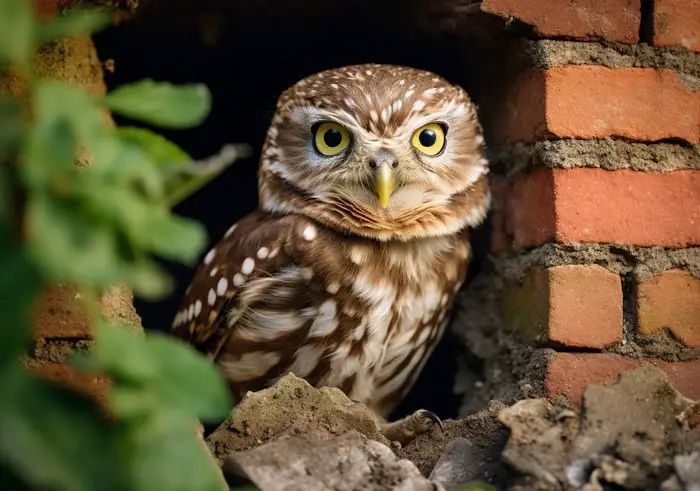
Worm Storage
You can store live worms in a refrigerator using a plastic worm storage box with a lid. As for dried worms, freezing them at low temperatures will keep them edible for up to 9 months. Put the worms in your microwave to unfreeze them before serving the owls.
FAQs
Got more questions? Let’s address some queries owl enthusiasts have regarding owls eating worms.
Owls use their excellent eyesight and hearing to find worms. They can also sense the vibrations of worms moving through the soil.
Owls will often perch on a branch or other high vantage point and scan the ground for worms. When they see or hear a worm, they will swoop down and grab it with their talons.
While most worms are safe for owls to eat, some worms are parasitic and transmit disease to owls. For example, roundworms and hookworms can cause infection in owls, and they are particularly dangerous for baby owls.
However, these worms are too small for owls to eat, and owls typically avoid eating such parasitic or toxic worms.
The number of worms that an owl needs depends on its size and activity level. In general, owls eat about 10% to 30% of their body weight in food each day. A small owl only eats a few worms per day, while a large owl needs to eat hundreds of worms each day.
Wrapping Up!
In our quest of ‘Do owls eat worms’, I’ve explored which owls eat worms regularly and why. With their small beaks, most tiny owls can easily forage and capture these soft-bodied invertebrates. Larger owls struggle to capture these tiny worms with their enormous beaks.
Due to their small size, owls feed worms more as a supplementary meal. Worms are a good source of protein, fat, fiber, minerals, and Vitamin B. Overall, they can serve owls with the necessary calories and nutrition for several hours.
